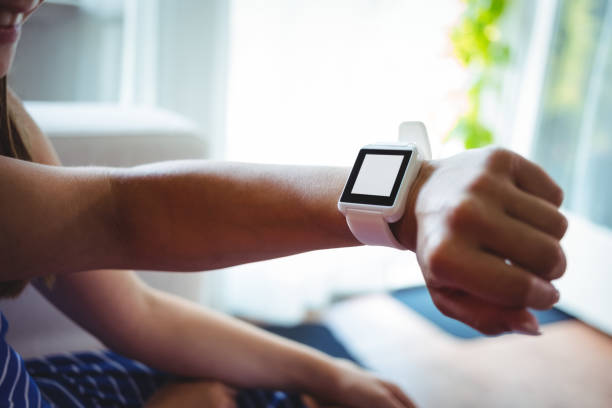In today’s fast-paced world, where technology reigns supreme, the relationship between smartwatches and mental health has gained significant attention. These wearable devices, once primarily used for tracking physical activity, have now evolved into sophisticated gadgets capable of monitoring various aspects of our lives, including our mental well-being.
you can read more X9 Ultra Smart Watch
This article delves into the intriguing connection between smartwatches and mental health, exploring their potential benefits, challenges, and the role they play in enhancing our overall quality of life.
Introduction
Smartwatches have revolutionized the way we interact with technology and manage our health. Beyond their functional aspects, they now promise to aid us in maintaining a healthy mind. As mental health awareness continues to grow, smartwatches have stepped in as potential allies in our quest for emotional well-being.
Understanding Mental Health
Mental health refers to our emotional, psychological, and social well-being. It affects how we think, feel, and behave, and it plays a significant role in how we handle stress, relate to others, and make choices. Just like physical health, mental health is a crucial aspect of overall well-being.
Here are some key points to consider:
Mental Health Spectrum:
Mental health exists on a spectrum. At one end, there’s good mental health, where a person can cope with life’s challenges, maintain healthy relationships, and work productively. On the other end, there are various mental health disorders that can impact thoughts, emotions, and behavior.
Common Mental Health Disorders:
There are various types of mental health disorders, including anxiety disorders, mood disorders (like depression and bipolar disorder), schizophrenia, and eating disorders. Each of these has its own set of symptoms, causes, and treatments.
Causes:
Mental health disorders can be caused by a combination of genetic, biological, psychological, and environmental factors. Traumatic experiences, chronic stress, biochemical imbalances in the brain, and family history can all contribute to the development of mental health issues.
Stigma:
Unfortunately, there’s still a stigma associated with mental health problems in many societies. This stigma can lead to discrimination, prevent people from seeking help, and contribute to a lack of understanding about these conditions.
Seeking Help:
Just like you would seek medical help for a physical ailment, it’s important to seek help for mental health issues. Mental health professionals, such as psychiatrists, psychologists, therapists, and counselors, are trained to provide appropriate support and treatment.
Treatment:
Treatment for mental health disorders can include therapy (such as cognitive-behavioral therapy or talk therapy), medications, lifestyle changes (like exercise, proper nutrition, and stress management), and support from friends and family.
Self-Care:
Maintaining good mental health involves practicing self-care. This includes getting enough sleep, staying physically active, nurturing social connections, managing stress, and engaging in activities you enjoy.
Prevention:
Taking steps to maintain good mental health can help prevent the onset of mental health disorders. Building resilience, learning healthy coping mechanisms, and seeking support early on can make a significant difference.
Holistic Approach:
Mental health is closely intertwined with physical health, and taking a holistic approach to well-being is important. Taking care of both your body and mind contributes to a healthier overall lifestyle.
The Emergence of Smartwatches
Smartwatches have evolved from being mere time-telling devices to becoming comprehensive health trackers. With built-in sensors and advanced algorithms, they can gather real-time data about our physical activities, heart rate, and even sleep patterns. This data has opened up new possibilities for monitoring and improving mental health.
Monitoring Stress Levels
Stress is a common aspect of modern life, and prolonged exposure to it can have adverse effects on mental health. Smartwatches equipped with stress monitoring features use heart rate variability and other metrics to detect periods of heightened stress. This awareness empowers users to engage in relaxation techniques, ultimately mitigating the impact of stress on their mental well-being.
Tracking Sleep Patterns
Quality sleep is essential for mental health. Smartwatches with sleep tracking capabilities offer insights into sleep patterns, helping users understand their sleep quality and make necessary adjustments. By fostering better sleep habits, these devices indirectly contribute to improved mental health.
Promoting Physical Activity
Physical activity is closely linked to mental well-being. Many smartwatches encourage users to stay active by setting goals and providing reminders to move. Engaging in regular exercise triggers the release of endorphins, which are natural mood lifters, thus positively influencing mental health.
Mindfulness and Meditation
Several smartwatches offer mindfulness and meditation features. Guided breathing exercises and meditation sessions can help users manage stress, enhance focus, and promote a calm mind. These features make mental health management more accessible, especially for those with busy lifestyles.
Personalized Insights and Feedback
One of the notable advantages of smartwatches is their ability to provide personalized insights and feedback. By analyzing the data they collect, these devices offer actionable suggestions for improving mental well-being. This tailored approach makes self-care and mental health management more effective.
Challenges and Considerations
While smartwatches hold immense potential, there are challenges to consider. They are not a substitute for professional medical advice and should be used as complementary tools. Additionally, the accuracy of their sensors and algorithms is a concern, as incorrect data could lead to misguided conclusions about one’s mental health.
Ethical and Privacy Concerns
As smartwatches gather sensitive health data, ethical and privacy concerns arise. Users must ensure their data is protected and used responsibly. Manufacturers and developers should prioritize data security to foster trust among users.
The Human Touch in Mental Health
Despite the technological advancements, human connection remains paramount in mental health care. Smartwatches can offer support, but face-to-face interactions with mental health professionals, friends, and family are irreplaceable pillars of emotional well-being.
Combating Stigma
Smartwatches, by normalizing discussions around mental health, contribute to combating the stigma associated with these issues. When a widely-used device addresses mental health concerns, it encourages open conversations and reduces feelings of isolation.
Future Prospects
The future of smartwatches and mental health holds exciting prospects. As technology advances, these devices could become even more sophisticated in assessing and addressing mental well-being. Integrating AI-driven solutions and more accurate sensors could revolutionize how we approach mental health care.
Conclusion
Smartwatches have transcended their initial purpose to become valuable tools in the realm of mental health. By offering stress monitoring, sleep tracking, activity encouragement, mindfulness features, and personalized insights, these devices contribute to better mental well-being. However, they are not a replacement for professional care, and human connections remain crucial in the journey towards optimal mental health.
FAQs
Can smartwatches diagnose mental health conditions?
Smartwatches can provide insights and indicators related to mental health, but they cannot diagnose conditions. Professional medical advice is necessary for accurate diagnosis.
Are smartwatch-based stress management techniques effective?
Smartwatch-based stress management techniques can be helpful in promoting relaxation and awareness, but their effectiveness may vary from person to person.
How do smartwatches encourage physical activity?
Smartwatches use activity tracking features, goal setting, and reminders to motivate users to stay active throughout the day.
Do smartwatches store sensitive mental health data?
Yes, smartwatches collect health data, including mental health-related information. It’s important to prioritize data security and privacy.
What role do social interactions play in mental health?
Social interactions are essential for emotional well-being. While smartwatches offer support, face-to-face interactions with loved ones and professionals are crucial for holistic mental health care.



